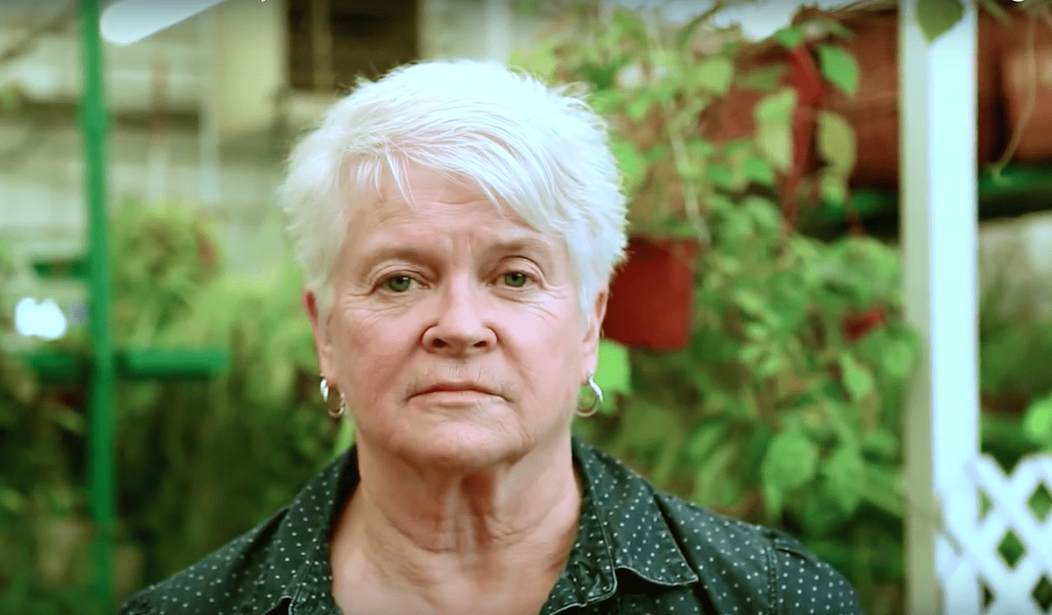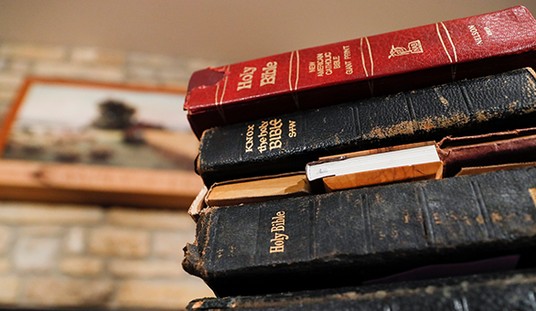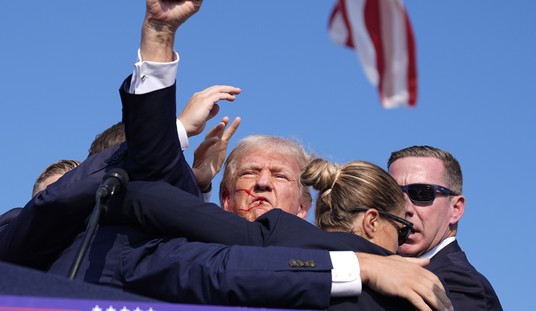In a unanimous decision issued Thursday, the Washington State Supreme Court upheld the fines against florist Barronelle Stutzman for refusing to sell flowers to a long-time customer for his same-sex wedding. The court rejected her claims regarding freedom of speech, freedom of association, and free exercise of religion in order to uphold a state non-discrimination law.
Stutzman’s claims, like those of other small business owners who have refused service for homosexual weddings — but emphatically not to gay or lesbian people as a class — rely on her argument that she does not discriminate on the basis of sexual orientation, but only denies service in specific cases that would implicate her in public speech, namely the wedding of a man to another man. The court acknowledged that this florist “has served gay and lesbian customers in the past for other, non-wedding-related flower orders.”
Nevertheless, the court claimed that Stutzman’s denial of service specifically for a wedding constituted discrimination on the basis of sexual orientation. “We reject Stutzman’s proposed distinction between status and conduct fundamentally linked to that status,” the unanimous decision declared.
This claim — that a gay wedding is “fundamentally linked to” the status of being attracted to members of the same sex — stretches the truth (do all gay people, or even all straight people, want to get married?), and does not defeat Stutzman’s claim that she does not discriminate on the basis of sexual orientation.
Here are the facts: Stutzman served Robert Ingersoll flowers for at least nine years, knowing that they were intended for his gay partner, Curt Freed. The florist only denied Ingersoll flowers specifically for his wedding, on the basis that she considered marriage to be between a man and a woman and that serving his wedding would indicate a public agreement that a ceremony between a man and a man also constituted a wedding.
There is a difference between selling flowers to a person and arranging flowers for that person’s event. If the event carried a message fundamentally at odds with the florist’s belief — if for instance someone asked a gay florist to arrange flowers for a Westboro Baptist Church event, or a Jewish florist to decorate a neo-Nazi event — denial of that specific service should not fall under public accommodations laws.
There are numerous reasons for this would-be exemption. As Stutzman argued, Americans have basic rights under the First Amendment to the Constitution, including the right to free speech, the right to free expression of religion, and the right to free association.
Each of these rights should apply to this situation. Stutzman’s being forced to serve a gay wedding constitutes compelled speech that the vows of one man to one man constitute a wedding. She does not believe this, and therefore she should have a free speech right to deny service.
Since the disagreement Stutzman has with homosexual marriage is based on religion, it arguably falls under her right to freely exercise her religion. The freedom of association claim rests on the argument that Stutzman, by serving this public event, would thereby be associating herself with supporters of gay marriage, an association she wishes to avoid.
But the Washington State Supreme Court struck down these notions of freedom protected in the First Amendment.
On the free speech issue, the court ruled that the florist’s work did not constitute speech. While Stutzman insisted that her “unique expression” crafted in “petal, leaf, and loam” should be considered speech, the state of Washington and Ingersoll countered that her floral arrangements are one facet of conduct, not speech, that falls into her commercial business.
In discussing whether providing flowers for a gay wedding is “inherently expressive,” the court dismissed the florist’s freedoms by using a false comparison. “As Stutzman acknowledged at deposition, providing flowers for a wedding between Muslims would not necessarily constitute an endorsement of Islam, nor would providing flowers for an atheist couple endorse atheism,” the opinion noted.
This is not a fair argument, however. The religion of the couple does not matter — what makes the event not a wedding in Stutzman’s view is that there are two men, not a man and a woman. A better example would be if the court asked Stutzman if she would prepare flowers for a wedding of one man and two women.
The court’s argument against the florist’s religious freedom claim focused more on the law itself than on the case at hand. The court argued that the Washington Law Against Discrimination (WLAD) is “neutral.” Indeed, taken on its merits, the law’s prohibition of discrimination on the basis of sexual orientation does not impede religious freedom. Stutzman is not trying to discriminate on those grounds, so this law arguably does not apply.
In this section, the court responded to the florist’s claim that “since other florists were willing to serve Ingersoll, no real harm will come from her refusal.” To this, the court said it agreed with Ingersoll and Freed that “this case is no more about access to flowers than civil rights cases in the 1960s were about access to sandwiches.”
Again, the problem with this argument is that Stutzman is not discriminating against people based on sexual orientation — she’s trying to opt out of a public event celebrating as a wedding something she does not consider a wedding.
Finally, the court said Stutzman’s claim on free association failed, because “she relies exclusively on cases addressing membership in private clubs.” The difficulty comes from the uniqueness of the situation — her freedom of association to opt out of a public event celebrating something with which she disagrees has little precedent.
The court admitted that “the United States Supreme Court has even held that states may enforce anti-discrimination laws against certain private organizations, defined by particular goals and ideologies, if the enforcement will not impair the group’s ability to pursue those goals and espouse those ideologies.” Even so, “the Supreme Court has never held that a commercial enterprise, open to the general public, is an ‘expressive association’ for purposes of First Amendment protections.”
The florist’s shop may not count as an “expressive association,” but Stutzman should have a right to choose not to associate with gay marriage. Unfortunately, American jurisprudence has not developed the right of association as firmly as the right to free speech or religious freedom, but that does not mean Stutzman’s right should be abridged now.
As the Supreme Court declared in West Virginia Board of Education v. Barnette (1943), “If there is any fixed star in our constitutional constellation, it is that no official, high or petty, can prescribe what shall be orthodox in politics, nationalism, religion, or other matters of opinion, or force citizens to confess by word or act their faith therein.”
This should apply to gay marriage as much as anything else. After the Obergefell v. Hodges decision in 2015, homosexual marriages are legally recognized, but that does not mean that religious Americans have to alter their definitions of marriage in non-legal settings.
Cases like this one do not involve discrimination but the desire to live and operate business by religious convictions. Similar situations arose when the Obama administration tried to force Hobby Lobby and the Catholic charity the Little Sisters of the Poor to pay for abortifacient contraception coverage. Thankfully, the Supreme Court upheld the owners’ rights to follow their conscience in business.
This ruling upholds a February 2015 ruling, wherein Benton County Superior Court Judge Alexander Ekstrom fined Stutzman $1,000 plus $1 in court costs and fees because she had violated the WLAD. The florist entered the business 30 years ago, when her mother bought a flower shop and she started as a delivery person.
In an interview with her law firm, Alliance Defending Freedom, Stutzman explained that “it was a real struggle to decide what to do” when Robert Ingersoll asked her to help at his wedding. “As much as I love Rob, I just couldn’t — couldn’t be a part of that. If I did Rob’s wedding, it would be from my heart, because I think he’s a really special person, and I would want to make it really special for him.”
“It wasn’t something that I flippantly said, ‘Oh, I wasn’t going to do Rob’s wedding because he’s gay,'” Stutzman said. As hard as it might be for some people to believe, this really is a serious conviction for her.
The Cato Institute’s Ilya Shapiro reported that Stutzman’s lawyers announced they will appeal the case to the Supreme Court. Should Neil Gorsuch be confirmed in the interim, there is hope that this florist’s rights to religious freedom, free association, and free speech will be vindicated at the highest level. Until then, Americans can only pray for justice.









Join the conversation as a VIP Member